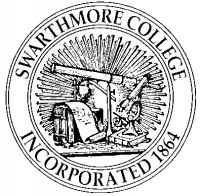 In an opinion earlier this month that failed to garner even a mention in the collective securities litigation blogging universe, the United States Court of Appeals for the Second Circuit affirmed the District Court's approval of a plan by the Securities and Exchange Commission to distribute money to the victims of WorldCom, Inc.'s massive fraud.
In an opinion earlier this month that failed to garner even a mention in the collective securities litigation blogging universe, the United States Court of Appeals for the Second Circuit affirmed the District Court's approval of a plan by the Securities and Exchange Commission to distribute money to the victims of WorldCom, Inc.'s massive fraud.The SEC had prepared a distribution plan pursuant to the "Fair Funds for Investors" provision of the Sarbanes-Oxley Act of 2002 (15 U.S.C. § 7246(a)). Judge Jed S. Rakoff approved the plan, which "excluded investors whose aggregated sales and purchases of WorldCom securities over the relevant time period resulted in a net profit," or recovered than thirty-six cents on the dollar either in the bankruptcy proceeding or through the sale of their WorldCom securities."
The Official Committee of Unsecured Creditors of WorldCom, Inc. appealed, arguing that:
the district court extended inappropriate deference to the SEC when it approved the Fair Fund distribution and erred in rejecting the Committee's objections.The Second Circuit held, in a case of first impression, both inside and outside the Circuit, that the "fair and reasonable" standard of review applied by the district court is the appropriate one for Fair Fund distribution plans. Further, the Court held:
We have long understood that the SEC's charge to enforce the securities laws carries with it the discretion to determine how to distribute recovered profits among injured investors.The distribution is to be made from the WorldCom Victim Trust. Further information can also be found at the SEC's Spotlight on SEC v. WorldCom page, here, or the website maintained by lead counsel in the securities class action, here.
Thanks to reader Werner Kranenburg, a former Schiffrin & Barroway, LLP summer associate, and current law student in the United Kingdom for nudging us in the direction of the opinion.
 Daily Trivia: Judge Rakoff, who gave the 2003 commencement speech at Swarthmore College, took the opportunity to recount the story of A. Mitchell Palmer, a fellow Swarthmore graduate. Judge Rakoff described Palmer as "the worst of all Swarthmore graduates."
Daily Trivia: Judge Rakoff, who gave the 2003 commencement speech at Swarthmore College, took the opportunity to recount the story of A. Mitchell Palmer, a fellow Swarthmore graduate. Judge Rakoff described Palmer as "the worst of all Swarthmore graduates."Palmer, who was appointed Attorney General in 1919, was twice the intended victim of anarchist bomb attacks. These personal attacks are believed to have been a significant influence for Palmer's campaign against radicalism, which culminated in the "Palmer Raids," a series of police roundups, warrantless wiretaps, and mass arrests of suspected leftists and radicals from 1918-1921.
No comments:
Post a Comment